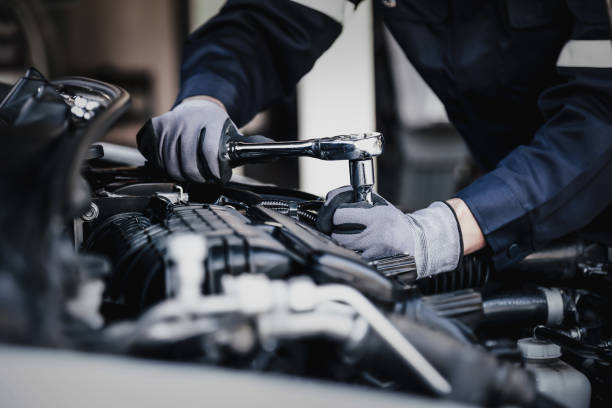Fixing auto issues can range from simple DIY tasks to requiring professional services. The complexity of the problem often determines the approach needed for repair. Understanding when to handle a repair on your own and when to seek expert help can save both time and money.
In this blog, we will discuss how to fix auto issues and the best action to take in different situations.
Common DIY Repairs
Replacing a car battery is a common DIY repair. First, disconnect the negative cable, followed by the positive one. Take out the old battery, place the new one, and reconnect the cables.
Changing a flat tire is another simple task. Use a jack to lift the car and remove the lug nuts. Swap the flat tire with the spare, tighten the lug nuts, and lower the car.
When to Seek Professional Help
Some car problems need help from a car repair service. If your car has engine or transmission problems, a professional should look at it. These parts are complex, and fixing them yourself can cause more damage.
Electrical issues often need expert knowledge, too. Faulty wiring or problems with the car’s computer system can be tricky. It’s best to let a trained technician handle these types of repairs.
Finding a Reputable Mechanic
Finding a reputable mechanic can make a big difference in car maintenance and repairs. Start by asking friends and family for recommendations. It’s also smart to check online reviews to see what other customers say about a particular car shop.
For instance, if you need an Asian car repair specialist, it’s important to look for someone with expertise in the specific make and model of your car. Visit the shop and ask questions to understand their experience and customer service.
Costs and Budgeting
Auto repair costs can vary greatly. For instance, an oil change is generally inexpensive, while transmission repairs can be costly. Always ask for an estimate before agreeing to any service.
Budgeting for car maintenance is crucial. Set aside money each month for repairs and emergencies. This plan helps avoid financial stress when unexpected issues arise.
Preventative Measures
Regular car maintenance is key to avoiding major repairs. Change your oil every 3,000 to 5,000 miles to keep the engine smooth. Check tire pressure monthly to prevent blowouts and extend tire life.
Make sure to inspect your brakes twice a year. Replace brake pads before they wear down completely to avoid damaging the rotors. Regularly check and replace the air filter to ensure the engine runs efficiently.
A Roadmap to Effectively Fix Auto Issues
Knowing when to fix auto issues yourself and when to seek help is crucial. Basic tasks like changing a battery or tire can save money. For complex problems, always consult a professional.
Find a mechanic with good reviews and ask for estimates before any repair. Budgeting for car maintenance helps handle unexpected costs. Regular upkeep, like oil changes and brake checks, prevents major issues.
With these tips in mind, you can effectively fix auto issues and keep your car running smoothly.
Want to read some more informative articles like this one? Poke around on the rest of our blog to see what interests you.




